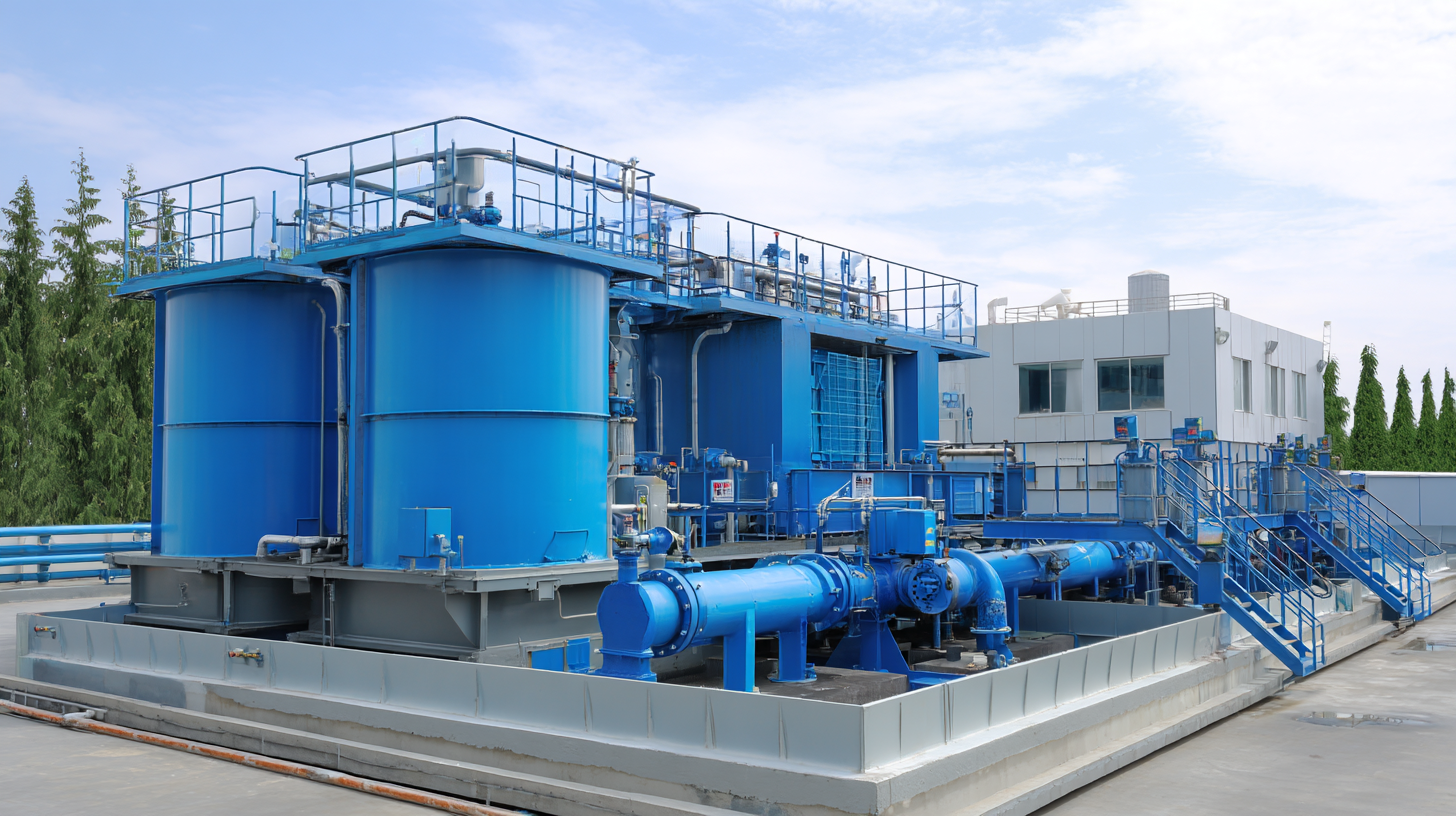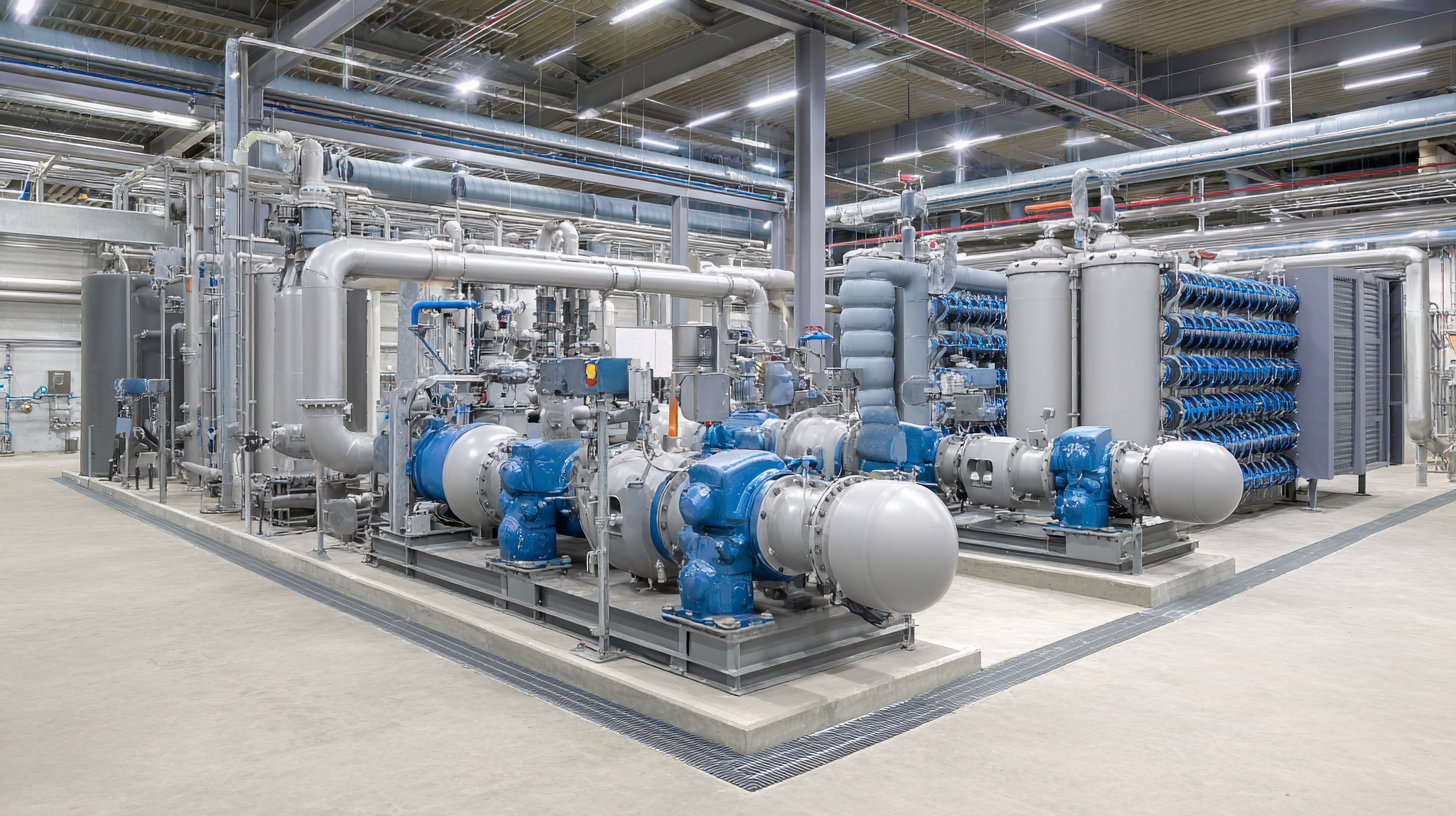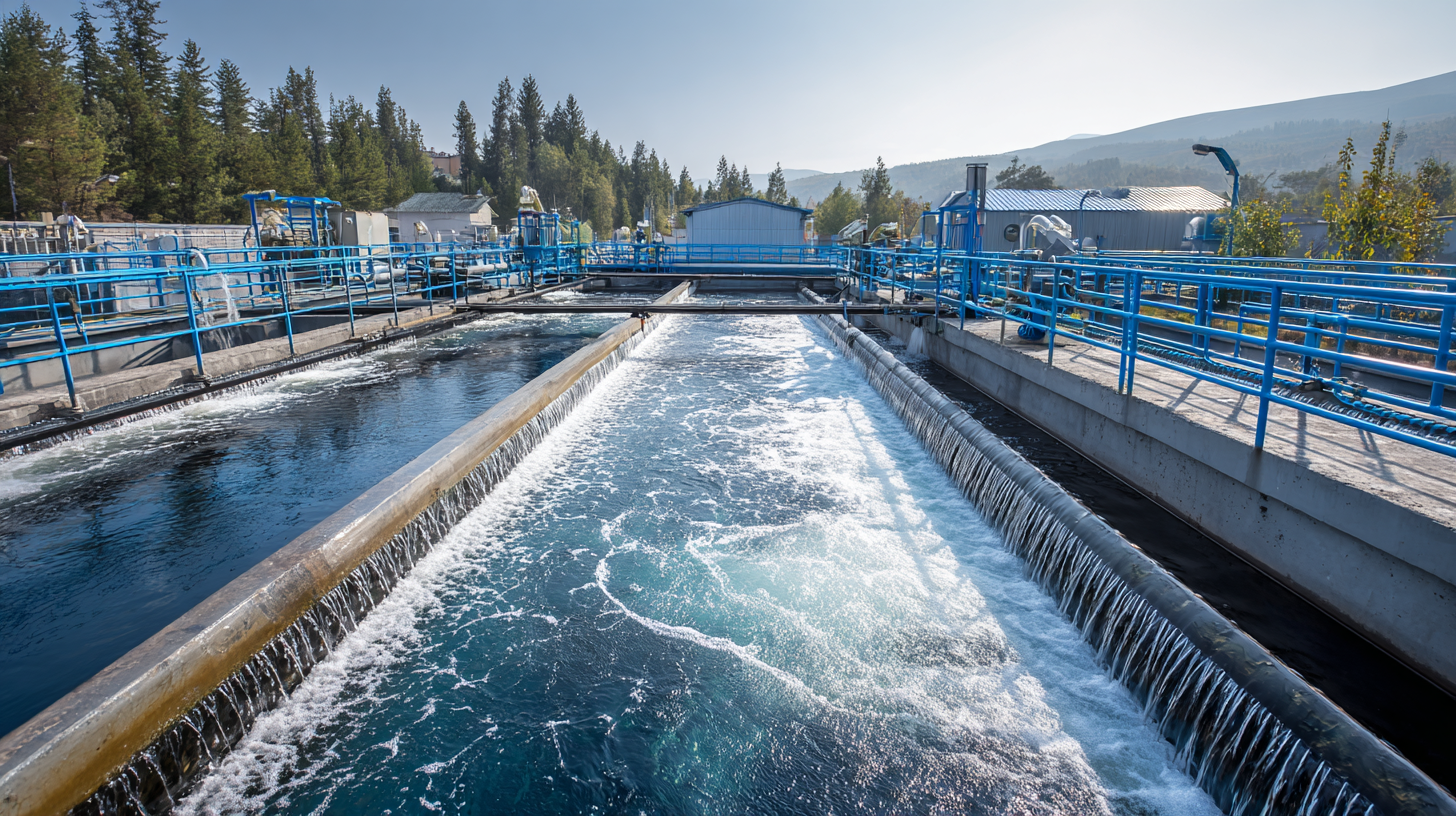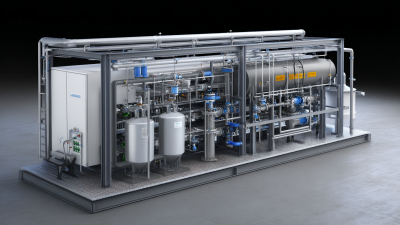Top 10 Waste Water Treatment Systems Revolutionizing Water Management with 70 Percent Efficiency Improvement
In the evolving landscape of water management, the adoption of advanced waste water treatment systems has become imperative. According to a recent report by the World Health Organization, nearly 80% of the world's waste water is released into the environment without adequate treatment, posing significant health and environmental risks. However, innovative treatment systems are emerging, demonstrating up to a 70 percent efficiency improvement in the waste water treatment process, paving the way for a more sustainable future.
Experts in the field have emphasized the critical importance of these systems. Dr. Emily Carter, a renowned authority in water management technologies, stated, "Integrating cutting-edge waste water treatment systems is not only vital for reducing environmental impact but also for ensuring the sustainability of our water resources." This sentiment reflects the growing recognition of how effective treatment solutions can significantly bolster water conservation efforts while also contributing to the circular economy.
As we approach 2025, the quest for more efficient waste water treatment solutions continues to gain momentum. With emerging technologies and innovative practices, industries can expect to see transformative changes in how we manage our precious water resources, ensuring cleaner and safer water for generations to come.

Innovative Membrane Bioreactors Achieving Up to 90% Nutrient Removal Efficiency
Innovative membrane bioreactors (MBRs) are at the forefront of wastewater treatment technology, significantly enhancing the efficiency of nutrient removal processes. These advanced systems integrate a biological treatment phase with membrane filtration, allowing for the simultaneous degradation of organic matter and the retention of suspended solids. As a result, MBRs can achieve nutrient removal efficiencies of up to 90%, a considerable leap compared to traditional methods.
This impressive efficiency stems from the unique design of MBRs, which utilize semi-permeable membranes to separate treated water from solids. This setup not only minimizes the risk of membrane fouling but also enables the treatment of higher volumes of wastewater in a smaller footprint. The innovations in membrane materials and configurations further improve performance and longevity, making these systems a viable option for municipalities and industries facing stringent environmental regulations. As urban areas continue to grow, the adoption of MBR technology promises to play a crucial role in sustainable water management practices worldwide.
Top 10 Waste Water Treatment Systems Revolutionizing Water Management
| System Name | Efficiency Improvement (%) | Nutrient Removal Efficiency (%) | Membrane Type | Capacity (m³/day) |
|---|---|---|---|---|
| System A | 70 | 90 | Hollow Fiber | 500 |
| System B | 75 | 85 | Flat Sheet | 800 |
| System C | 80 | 88 | Spiral Wound | 600 |
| System D | 90 | 90 | Ceramic | 700 |
| System E | 72 | 82 | Hollow Fiber | 550 |
| System F | 77 | 89 | Flat Sheet | 650 |
| System G | 85 | 87 | Spiral Wound | 720 |
| System H | 78 | 85 | Ceramic | 620 |
| System I | 83 | 91 | Hollow Fiber | 700 |
| System J | 76 | 84 | Flat Sheet | 580 |
Advanced Oxidation Processes Leading to 70% Reduction in Contaminants
Advanced Oxidation Processes (AOPs) have emerged as a groundbreaking approach in wastewater treatment, significantly contributing to the reduction of contaminants in water. By utilizing powerful oxidants and various catalysts, AOPs effectively break down complex pollutants that traditional methods struggle to eliminate. This chemical strategy not only enhances the degradation of organic matter but also targets hazardous substances, pushing efficiency improvements to unprecedented levels.
One of the most remarkable features of AOPs is their ability to achieve a staggering 70% reduction in contaminants within treated wastewater. This effectiveness is crucial for industries facing strict regulatory standards and environmental concerns. As water scarcity issues escalate globally, the adoption of AOPs offers a promising solution for sustainable water management. Their implementation allows for the recycling of treated water, reducing overall freshwater consumption and mitigating the environmental impact of wastewater discharge. This innovation represents a significant step forward in achieving cleaner, safer water resources for future generations.
The Role of Eco-Friendly Biofilters in Enhancing Waste Water Treatment Performance
Eco-friendly biofilters are transforming the landscape of wastewater treatment by offering a sustainable solution that significantly boosts treatment performance. Utilizing natural processes, these biofilters harness the power of microorganisms to break down contaminants in wastewater. The inherent ability of these organisms to metabolize organic pollutants enhances the overall efficiency of treatment systems, contributing to a remarkable 70 percent improvement in performance. By mimicking ecological processes, biofilters provide an effective means of purifying water while minimizing environmental impact.
Moreover, the adoption of biofilters in wastewater management aligns with global sustainability goals. As cities increasingly face the challenge of water scarcity and pollution, the integration of these eco-friendly systems promotes a circular approach to water resource management. Biofilters not only reduce the carbon footprint associated with traditional treatment methods but also encourage biodiversity by creating habitats for various microorganisms and plants. This innovative technology not only addresses immediate wastewater treatment needs but also paves the way for a more resilient and sustainable future in water management.
Cutting-Edge Ultrafiltration Techniques Boosting Water Recovery Rates by 80%
Recent advancements in ultrafiltration techniques have significantly transformed wastewater treatment processes, leading to remarkable water recovery rates of up to 80%. These cutting-edge methods utilize semi-permeable membranes to effectively separate contaminants from water, allowing for a more efficient purification process. By operating at lower energy levels compared to traditional methods, ultrafiltration not only enhances the sustainability of water management but also decreases operating costs for treatment facilities.

The integration of ultrafiltration into wastewater systems has paved the way for improved resource recovery. This technology enables municipalities and industries to recycle a larger portion of their wastewater, thereby minimizing environmental impacts and fulfilling stringent regulatory requirements. Furthermore, the enhanced recovery rates contribute to more extensive utilization of treated water for various applications, including irrigation and industrial processes, supporting the growing demand for sustainable water solutions in an era marked by water scarcity.
Smart Monitoring Systems Improving Operational Efficiency by 65% in Treatment Plants
In the realm of wastewater management, the integration of smart monitoring systems is heralding a new era of operational efficiency. These advanced technologies employ real-time data analytics and IoT connectivity to optimize treatment processes, resulting in an impressive 65% improvement in functionality across various treatment plants. The shift towards intelligent monitoring not only enhances the accuracy of water quality assessments but also allows for proactive maintenance, reducing downtime and operational costs significantly.
Furthermore, the significance of smart monitoring extends beyond immediate efficiency gains. By enabling data-driven decision-making, these systems empower facility managers to identify inefficiencies and make informed adjustments to treatment protocols. The predictive capabilities of smart monitoring systems can preemptively address potential issues before they escalate, ensuring a steady flow of clean water and minimizing environmental impact. As the demand for sustainable water management solutions continues to grow, the adoption of these technologies signifies a crucial step toward achieving greater efficiency and reliability in wastewater treatment processes.

Related Posts
-

Revolutionizing Our Future: The Innovative Advances in Wastewater Treatment Systems
-

How Wastewater Treatment Systems Are Revolutionizing Environmental Sustainability
-

What Are Waste Water Treatment Systems and How Do They Work?
-

Exploring Innovations in Sewer Treatment Plants at China Import and Export Fair 2025
-

What is the Role of Waste Water Treatment Plants in Sustainable Water Management?
-

Innovative Solutions for Effective Industrial Waste Water Treatment Systems


